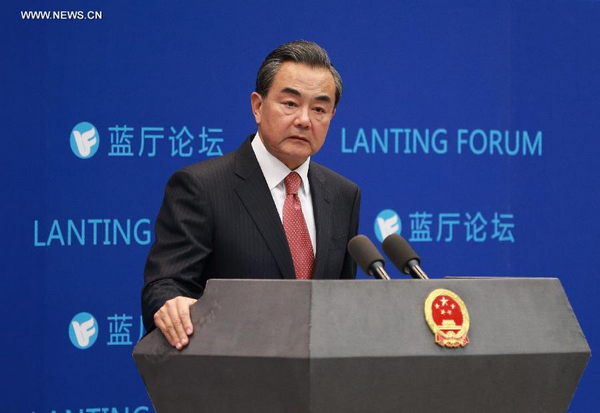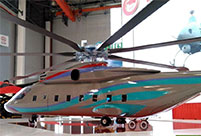

 |
Secondly, President Xi's visit will focus on cooperation between China and the United States. Over 200 years ago, a US merchant ship loaded with specialties arrived in China. That marked the beginning of trade between the two countries. Within the past decades following the establishment of diplomatic ties, bilateral trade had grown from nothing to 555.1 billion US dollars. Two-way investment increased from almost zero to more than 120 billion US dollars. Chinese companies made direct investments in 45 US states in growing amounts. China-US interaction and cooperation in international and regional affairs continued to expand. Such cooperation included hotspot issues like the Iranian nuclear issue, the Korean nuclear issue, the question of Afghanistan, as well as global challenges ranging from climate change and counter-terrorism to peace-keeping and poverty reduction and development. It is fair to say that the all-dimensional and strategic cooperation between China and the US has provided new drivers to boost not just bilateral relations, but also the cause of global peace and development.
President Xi's visit will take China-US cooperation to a new level. The two sides are expected to reach important agreement in economy and trade, energy, people-to-people exchange, climate change, environmental protection, finance, science and technology, agriculture, law enforcement, defense, aviation and infrastructure development. A large number of cooperation agreements that will have far-reaching impacts will be signed. The two sides will have in-depth exchange of views and step up coordination and cooperation on regional and international hotspot issues. This visit will expand the scope of common interests and add more substance to the new model of major country relations between the two countries.
The two sides will endeavor to bridge differences and strive for new and important progress in BIT negotiations, which will open up new prospects and create new sources of growth for China-US cooperation.
The two sides will work together to deepen economic cooperation and trade, and set higher and more ambitious targets for two-way trade and investment.
The two sides will expand cooperation on climate change and, while adhering to their respective basic positions, push forward multilateral negotiations to fulfill their due responsibilities as major countries in the world.
The two sides will have a deep-going discussion on the current global economic and financial situation, and step up communication and coordination on domestic economic policies. We expect a positive signal to be sent by the two sides that they will work together in real earnest to uphold stability and growth of the global economy.
The two sides will actively advance development cooperation that is based on the consent and participation of third countries. They may tap their respective strengths to contribute to balanced global development and attainment of the UN post-2015 development goals.
The two sides will step up dialogue on cyber issues, work together to combat all forms of cyber-crimes according to law, uphold cyber security and carry out cooperation in cyberspace. They could both play a constructive role and jointly make global cyberspace peaceful, secure, open and cooperation-oriented.
The two sides will step up cooperation on a broad range of regional and international issues, such as cooperation in the Asia-Pacific, implementation of the Iranian nuclear agreement, counter-terrorism, law enforcement, denuclearization of the Korean Peninsula, global governance, international peacekeeping, wildlife protection, and humanitarian assistance and disaster relief. This will underline the two sides' commitment to world peace, stability and development.
 |  |
 Art photos of Chinese beauty in Han Chinese clothing
Art photos of Chinese beauty in Han Chinese clothing Stunning photos of air show in China’s V-Day parade
Stunning photos of air show in China’s V-Day parade Construction of HK-Zhuhai-Macao Bridge enters final stage
Construction of HK-Zhuhai-Macao Bridge enters final stage Models change clothes on street in Hangzhou
Models change clothes on street in Hangzhou Model of heavy-lift copter makes debuts at Tianjin expo
Model of heavy-lift copter makes debuts at Tianjin expo Charming Chinese female soldiers
Charming Chinese female soldiers Beauty vs. muscular man
Beauty vs. muscular man First day in kindergarten
First day in kindergarten Pilots attending V-Day parade take group photos with their planes
Pilots attending V-Day parade take group photos with their planes Outdoor opera
Outdoor opera Pyongyang’s move may restart vicious circle
Pyongyang’s move may restart vicious circle Tibetan Buddhists receive education to dissuade them from separatism
Tibetan Buddhists receive education to dissuade them from separatism Rise seen in delayed payments, anti-dumping probes in Latin America
Rise seen in delayed payments, anti-dumping probes in Latin AmericaDay|Week